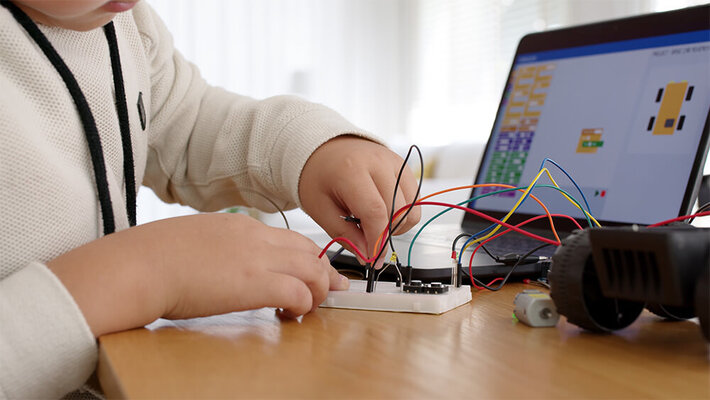➤ STEM To STEAM

It all starts with adding one more letter to the STEM formula, the letter “A” for arts.
Before we begin, let’s define the acronym, S.T.E.M. The letters represent the following: S – Science, T – Technology, E – Engineering, M – Mathematics.
In 1959 Charles. P Snow divided western society into two fundamental parts, the scientific and the humanistic. This is denoted in the original focus of STEM as it was only a set of scientific disciplines, which include the hard scientific, technological, engineering, and mathematical skills needed for driving new ideas and concepts.
Over the years, many scientists have recognized the place of art in the process of generating scientific knowledge as well as new ideas. The method, of using both hard and soft skills, lends itself well to creativity and new discoveries.

All knowledge, and discipline’s focused on the STEM model, strongly require an artistic complement or reinforcement as this strengthens the final design of products and directly impacts the aesthetic sense of consumers.
In other data, the American Association for the Advancement of Science has defined engineering as “the use of creativity and logic, grounded in mathematics and science, using technology as the linking agent.”
The use of creativity is extremely important in all engineering processes, since before creating a useful product, one must go through a creative process of ideas that will lead one to translate the thought solution into reality.
With the passage of time, the separation between the Arts and engineering has been blurring and to understand it we must know the concept of STEAM (Science, Technology, Engineering, Art, and Mathematics).

STEAM, a holistic and practical model that has its roots in economic need, guarantees this model a greater relevance with the consumer experience. Thus, it seems necessary to instill the artistic knowledge in all engineers as this translates into better designed products for the end consumer.
In short, if we add one more letter to the STEM paradigm, we get a new, improved, STEAM driven one that focuses primarily on the visual arts to provide a sense of aesthetics to engineering.
Both, the arts and engineering influence, expose students to a different way of seeing the world; however, applying STEM or STEAM methodologies, and involving the students’ interests, will help bring their ideas to life. To see what some of our students have done in blending art and technology, or if you are interested in learning more about the many wonders of STEAM, contact us at 951-530-8188 or book a tour of our facility. You will be glad you did.
More To Explore

What Is Educational Robotics and Why Is It Great for Kids?
In today’s technology-driven world, preparing kids for the future means going beyond traditional learning. Educational

10 Future Skills Kids Can Learn Today with Technology
In today’s rapidly evolving world, the most valuable thing we can give our children isn’t


